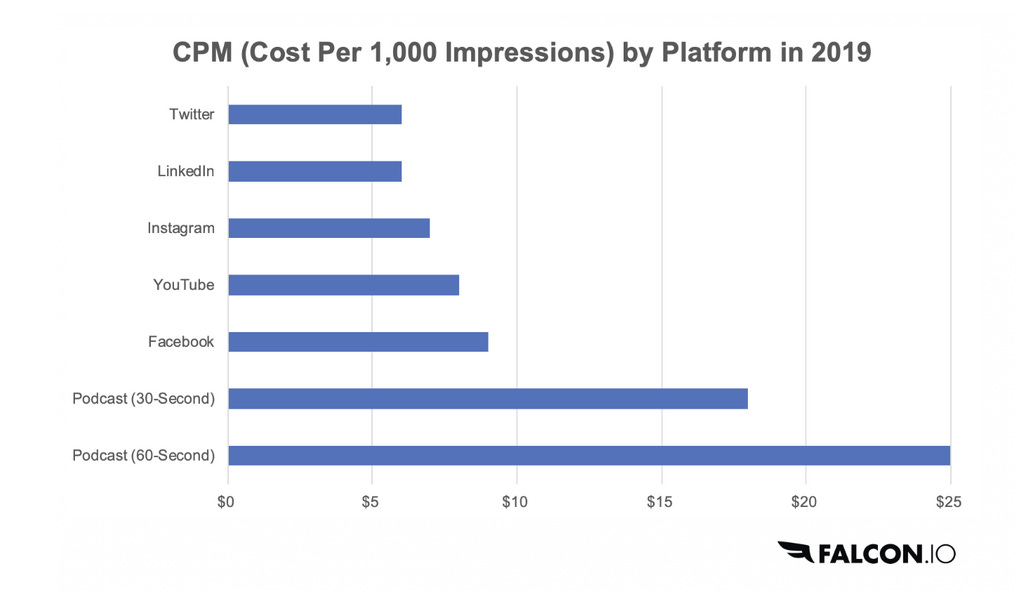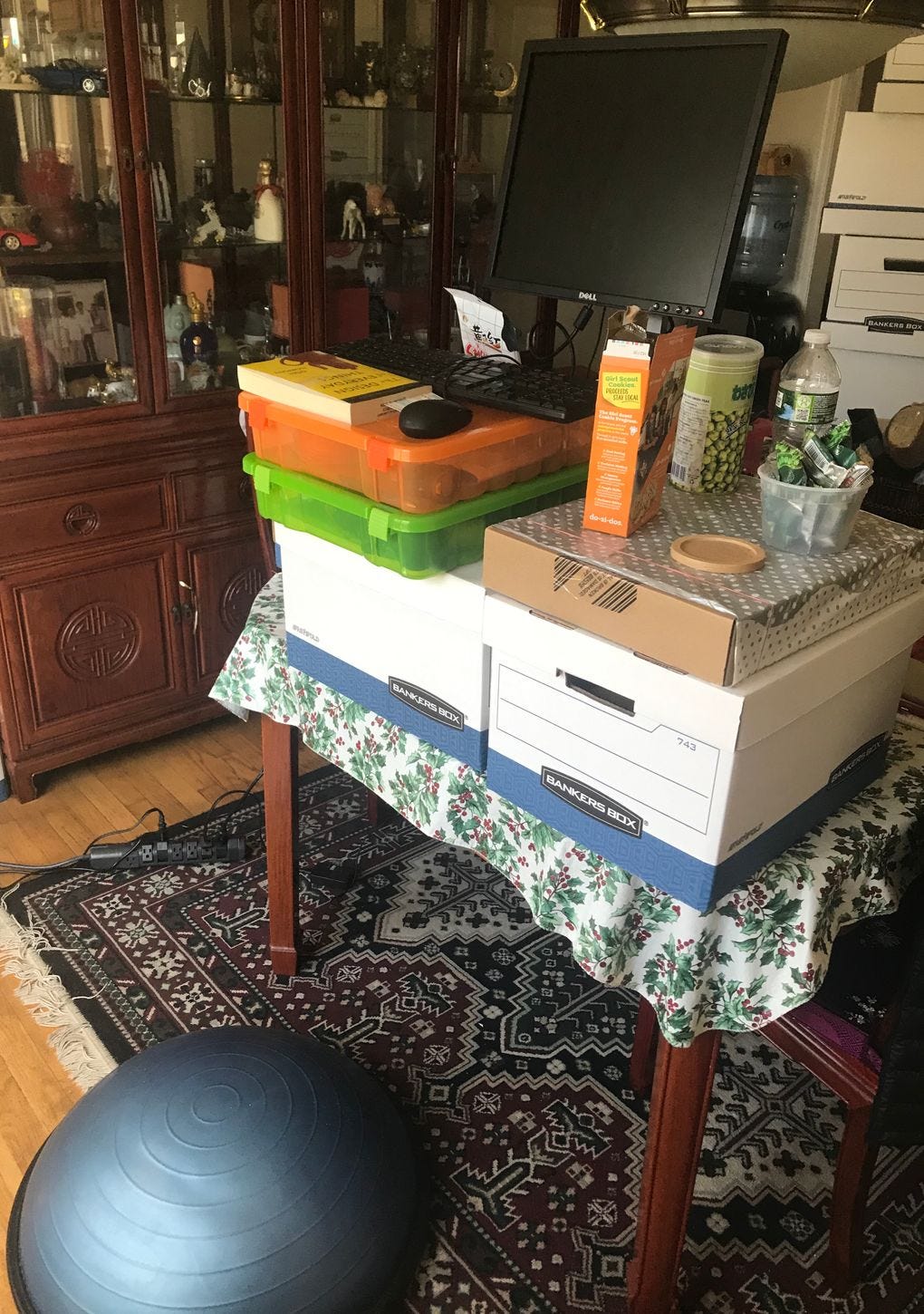Issue #8 | Spotify Welcomes Joe Rogan
Welcome to E-MERGE!
First, I want to give a shout-out and warm welcome to any new subscribers! If you enjoy reading this newsletter half as much as I enjoy writing it, please spread the word. I'm all for open dialogue and would appreciate your thoughts and feedback!
Second, I want to give a shout-out to all the WFH-ers. Some of us might be working from our couch or living room indefinitely, or, at least, until next year. This idea of remote work forces me to beg the question: if the future of work is remote, will the future of business attire be sweatpants and elastic waistband shorts?
In today's issue, I take a virtual drive to a small studio in Woodland Hills, CA and see what's turning heads in the world of podcasting.
The Joe Rogan Experience Just (Got) Real Exclusive
Joe Rogan in 2009: *sets up first podcast* "Nobody's watching this...113 already? Wow. 113 people is like a show at a comedy club. Now, I feel pressure. Now, we HAVE to be entertaining."
Joe Rogan in 2020: *starts preparing for his 1,479th podcast*

Credit: Tenor
Love him or hate him, Joe Rogan is, without a doubt, an Internet sensation. A stand-up comedian, actor, UFC commentator, ex-Fear Factor host, and podcaster, Rogan has crafted a colorful résumé over the years. His not-so-linear journey has led him to creating one of the world's most popular podcast shows, The Joe Rogan Experience (JRE).
You might know him for his most popular podcast interview with Elon Musk in 2018, where Musk infamously smokes a joint. He's went on to interview other prominent (and some controversial) guests like Bernie Sanders to Edward Snowden to Iron Man. Rogan never fails to pack a comedic punch in his interviews, which is what makes his show ever more entertaining. Yet, to understand his underlying success, we need to look beyond his stellar, star-studded lineup of guests and look deeper into our own experiences.
Rogan's podcasts are unfiltered, thought-provoking, and, above all else, human. He doesn't read a script. He keeps it conversational. And he cordially discusses the unspoken side of today's pressing issues (i.e. politics, mental health, grizzly bears) that don't often get favored hashtags in mainstream media. Yet, Rogan does so in a level-headed manner and with (almost) utmost respect towards his guests.
All the while, keeping it fun.
JRE's popularity is anything but coincidental. In a world that's in constant flux of change, our burning desires of finding commonality, building trust, and forming connections have never been stronger. Simply put, we attend to those who we can relate to and empathize with. It's exactly these types of qualities that have caught the attentions of consumers. It's also these exact qualities that have driven money-grabbing media companies to open up their purse strings to talk business.
On May 19, Joe Rogan announced that he was bringing his podcast to music streaming company Spotify in an exclusive multi-year licensing deal worth north of $100 million. The deal is one of the largest in the podcasting industry right now, and it comes at a time when the competition for our attention is fierce. JRE has accumulated 8.4 million YouTube subscribers, regularly racks up more than a million views per video, and gets roughly 190 million downloads per month! That's a far cry from the 30 million downloads per month he claimed he was getting a few years back. The podcast has consistently dominated Apple's podcasting charts and is the most-searched-for show on Spotify. To date, he rakes in $30 million per year, making him the highest-paid podcaster in the world.


So, what does this mean for you? Nothing, besides that you'll have to create a Spotify account (for free, mind you) if you want to continue listening to Joe Rogan talk about aliens or artificial intelligence. Rogan's full library of podcasts will be made available on the streaming service on September 1st and will be exclusive to the platform starting in 2021. You'd be able to experience the Joe Rogan Experience in audio and video, which is a newly tested capability for Spotify. Until then, you can still find his content on YouTube and Apple Podcast.
Music streaming rivals are taking note. Up until now, the industry has embraced an open ecosystem, where you could find and listen to your favorite podcasts in between different platforms. And, for the most part, access is free.
In the fight for streaming content, Spotify is playing chess while others are playing checkers. To differentiate itself from its peers, the "audio" streaming platform is expanding beyond its library of music and building out its podcast empire. It has written fat checks for the largest names in the business, including ~$200 million for Bill Simmons' The Ringer and $230 million for production company Gimlet Media. It has made high-profile vertical acquisitions for companies like podcast editing tool Anchor and has inked exclusive deals with figures like Barack & Michelle Obama.
Spotify is throwing buckets of cash into the medium in its efforts to not only hoard everyone's favorite content, but eventually create its own in-house programming. It's a chess move to leverage its content to attract new users and convert them into paid subscribers. And the proof is in the pudding. The company boasts more than 1 million shows today, with an overall increase in consumer engagement and creation. Consumption grew by "triple digits" in Q1 2020 compared to Q1 2019. More and more people are discovering the allure of podcasts and want to start their own; 70% of new podcasts were created within Spotify's own ecosystem through Anchor.
And the fight for audience attention and ownership is only going to intensify from here on out. Major music streaming platforms see the need to diversify beyond music in order to stay afloat and maintain sustainable margins. Podcast ad revenue is consistently growing year-over-year, though with higher-than-average CPM (costs per 1,000 listeners). In 2019, it had an average CPM of $25 for a 60-second podcast ad. Nevertheless, the growing sustenance of a podcast ad marketplace is bearing fruit for an industry that's seeing more and more creators and consumers globally.

Credit: TechCrunch
Back in 2019, Spotify CEO Daniel Ek envisions that over 20% of listening will be non-music audio content within a few years. So, expect more non-handshaking deals for podcast tech and exclusive rights to content. For celebrities, artists, and aspiring at-home podcasters, just know that Hollywood isn't skimping out on this phenomenon and is investing into high-production quality shows to keep up. Like Instagram and TikTok influencers, celebrity podcasters (like Joe Rogan) can use their sway to boost listenership, find new audiences, and connect intimately with their fans.
This watershed moment not only sheds light on the growing necessity of the medium but exposes the realities of the media business. Over the past month, “Call Her Daddy”, a popular sex and culture podcast owned by Barstool Sports, hit pause as its superstar hosts, Alexandra Cooper and Sofia Franklyn, struggled to come to an agreement over a new contract deal. The debacle cost Barstool $100,000 for every missed episode. Although the feud may seem overdramatized, it pinched a nerve for its million followers and sewed in a nascent reality for podcasting. A reality where the pull of influencers outgrows the media brands that invested in them in the first place.
Tl;dr: Spotify, Barstool, and all these tech giants are taking a page from the same playbook. First, win the hearts and minds of the consumer through innovation and good content. Then, win their wallets one 60-second ad at a time.
Tweet of the Week

Interesting Reads
🏬 A case study into the rise of dark stores and multifunctional retail. Nothing will be business-as-usual any time soon, and brick-and-mortar shops like restaurants and retailers are reconsidering how they manage their physical assets and supply chains. Expect a surge in hyper-localized or multifaceted stores in a post-Covid world.
🎥 Is the future of movie theaters going to look like a trip to the Apple Store or Disney World? I took a look into Big Tech's interest in cinema chains in my previous issue. In the case of Disney, a merger with a theater chain could be a win-win deal for both parties. The media giant would be able to showcase its own films, sell overpriced merch for its franchises (i.e. Avengers, Star Wars), and distribute other products through concessions. The first tech company to do so would ignite a race to the movies.
📱 Spending a lot of time in quarantine has proved fruitful for tech adoption and consumer-facing applications like TikTok. To become the next Instagram or YouTube, consumer companies need to focus on what the next wave of social networks could look like.
👨🏻💻💳👩🏽💻 There's a lot of nuances to building online marketplaces, especially at a time when big time players like Amazon and Google are making big time plays in the market. Connecting independent merchants and small businesses to buyers has been an opportunity for the seizing for major tech companies. Shopify has become a nascent, yet prominent player in the pack and has seen massive growth in user traffic in the midst of Covid-19. Yet, will its marketplace business model sustain long enough to withhold Amazon or, now, Facebook when the dust settles?
👩🍳 Streets blockaded for street vendors and outdoor dining. Installations of wellness stations for taking temperature. Flavor-concentration booths (like those in ramen shops) for in-store, low-interaction dining. Restaurants-turned-grocers. Here's a look into what restaurants could look like in the near future.
Done Deals
💰 Billionaire Mukesh Ambani is having a field day over in India. In last week's issue, I discussed why Facebook and private equity players Silver Lake and Vista Equity Partners are piling in billions of dollars into Jio, a fledging internet services company in India. Since then, Jio has raised another $1.5 billion from KKR and another $870 million from General Atlantic. In 4 weeks, the Indian tech company raised $10 billion! In 4 weeks, I learned how to perfect the perfect scrambled eggs.
🎧 Today's issue wouldn't be an issue about podcasts if we didn't talk more about...podcasts. Audible, the audiobook service owned by Amazon, is in talks to acquire celebrity podcasts, while Amazon Music is also in talks to acquire...celebrity podcasts 🤔. The tug-of-war between exclusive licensing deals is just getting started. On a similar note, this article offers a deeper look into the end of podcasting's innocence.
💃 I still haven't downloaded TikTok (yet), but it's scary to think how big of a cult following the short-form video app has amassed over quarantine. TikTok has recently traded at valuations of between $105 billion and $110 billion on private markets and, one source says, even as high as $140 billion! This trading is reflective of the overall investor sentiment about the platform: ByteDance > Facebook. In other news, ByteDance poached former Disney exec Kevin Mayer as CEO of TikTok to further solidify its credibility in American soil.
💻 "Let's Zoom" has been a common catchphrase at home. "Let's Run the World" has a different ring to it. Run the World, an online event platform designed to host all types of events from cocktail parties to global conferences, raised $11 million in Series A funding co-led by Andreessen Horowitz and Founders Fund. It also received notable backing from Will Smith's Dreamers VC and Kevin Hart's Hartbeat Capital.
🌽 As the saying goes, don't judge a food by its cover. Imperfect Foods, the company that delivers surplus and cosmetically imperfect produce (organic fruits and veggies that make a beeline to the trash bin), closed a $72 million Series C funding round, bumping its total amount raised to $119 million. In a time when consumers rely on convenience and value their health more so than ever, all arrows point to delivery services like Imperfect.
WFH Set-Up
During tumultuous times, we sometimes find ourselves in a pickle as we struggle to figure out our WFH groove. Back in March, I didn't have a standing desk or a fancy office chair conveniently at my disposal. So, like a singer who embarrassingly forgets his lines, I improvised. This set-up below only lasted me a few weeks and it doesn't take a rocket scientist/ergonomist to figure out why. Let's just say, I don't recommend standing on a Bosu ball for longer than 2 hours, 5 days a week.

Feel free to send me pictures of your own set-up or of any creative endeavor you've done at home. If you're creative enough, I'll make sure to feature your picture in my next issue. Reply to this email or reach out directly at jreydon96@gmail.com. I’d love to hear from you!
If you were a fan of this newsletter and would like to share it to a friend, you can suggest they sign up here. Please share any comments, tips, or funny WFH pictures to jreydon96@gmail.com.
Thanks for your interest and have a great week!
Jeff

